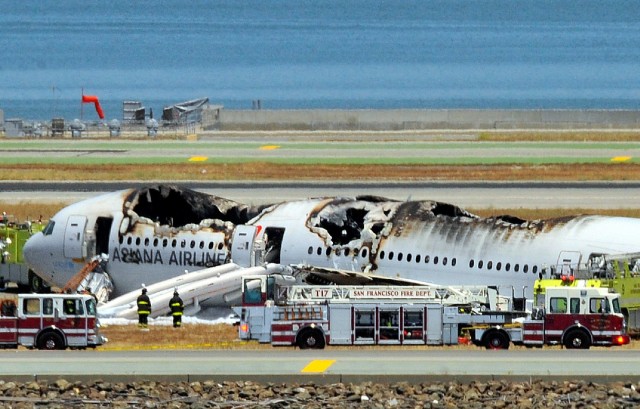
U.S. transportation officials have fined Asiana Airlines $500,000 for failing to assist family members of passengers on a flight that crashed last year at San Francisco International Airport.
The fine announced Tuesday is a first. Regulators say no airline has ever broken U.S. laws that require prompt and generous assistance to the loved ones of crash victims.
Three people died and dozens were injured on July 6 when Asiana Flight 214 clipped a seawall and crashed while landing.
"The last thing families and passengers should have to worry about at such a stressful time is how to get information from their carrier," U.S. Transportation Secretary Anthony Foxx said in a prepared statement.
Many of the families live in South Korea or China, meaning the airline was their main source of information on the crash half a world away.